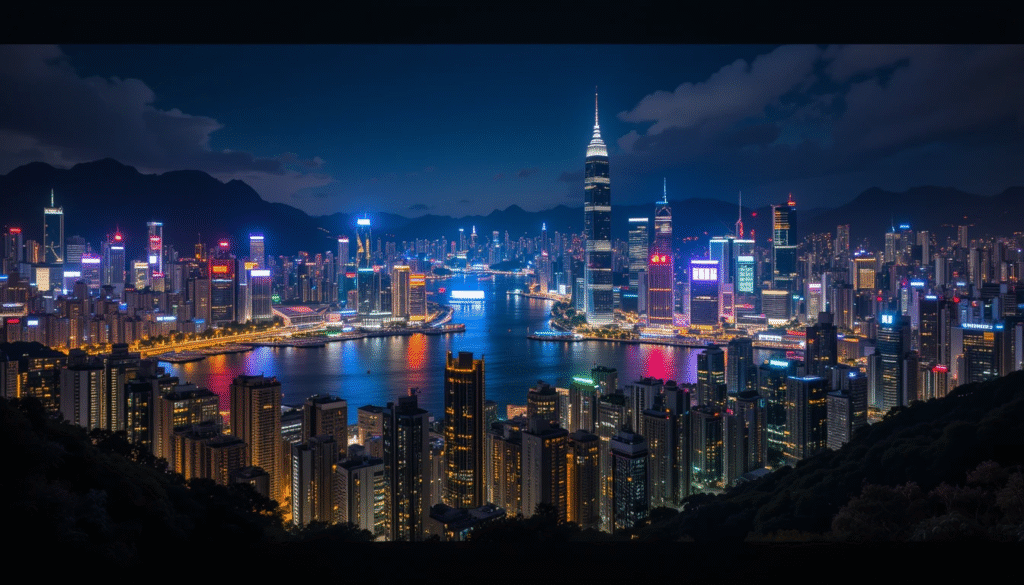
22 April 2025, Beijing, China: In a fresh escalation of tensions between China and the United States, Beijing announced sanctions on a number of US lawmakers, officials, and NGO leaders whom it accuses of interfering in Hong Kong affairs.
The announcement, made on Monday by China’s Ministry of Foreign Affairs, is a direct response to Washington’s sanctions imposed late last month on six senior officials from Hong Kong and mainland China. These US sanctions were linked to alleged “transnational repression” targeting pro-democracy activists abroad.
Foreign ministry spokesperson Guo Jiakun condemned the US actions, calling them a “serious violation of international law” and “a blatant interference in China’s internal affairs.” He said the individuals being sanctioned by China had acted “egregiously” with regard to Hong Kong-related matters, though specific names were not disclosed.
The Hong Kong government swiftly backed Beijing’s move. A government spokesperson said they “firmly reject and despise” the US sanctions, particularly those targeting local officials responsible for enforcing the city’s national security laws. “We fully support the central government’s counter action against the US,” the statement added.
US Sanctions and Rising Trade Tensions
On March 31, the US sanctioned six Hong Kong and mainland Chinese officials, accusing them of enforcing Hong Kong’s national security law in ways that extended beyond China’s borders to intimidate and silence dissidents overseas. These individuals include Hong Kong’s Secretary for Justice Paul Lam, former police chief Raymond Siu, two assistant police commissioners, national security committee secretary Sonny Au, and Dong Jingwei, director of Beijing’s Office for Safeguarding National Security in Hong Kong.
The US Department of State accused them of threatening the autonomy promised to Hong Kong under the “one country, two systems” framework, citing their involvement in targeting pro-democracy figures both locally and abroad.
This diplomatic clash is unfolding against a backdrop of deepening economic hostilities. The US has significantly increased tariffs on Chinese goods this year, bringing the effective tariff rate to about 156%, with some product categories facing duties as high as 245%. Beijing, in turn, has raised its own levies on US imports to around 125%.
Xia Baolong, China’s top official overseeing Hong Kong affairs, responded last week by calling the US tariffs “arrogant and shameless.” He emphasized that such economic pressure and sanctions would not deter China’s resolve to maintain control over Hong Kong. “The 1.4 billion Chinese people, including our compatriots in Hong Kong, will not be intimidated,” Xia stated. “These actions will only strengthen our unity and determination to protect national security and Hong Kong’s stability.”
Crackdown on Opposition and International Pushback
China’s national security law, enacted in June 2020 following widespread anti-government protests, continues to draw condemnation from Western nations. Since 2023, Hong Kong authorities have issued arrest warrants for 19 overseas activists under the law, offering HK$1 million (about US$128,500) for information leading to their arrest. Thirteen of these individuals have been declared fugitives, with their passports revoked.
Critics argue that the law breaches the promise China made during the 1997 handover of Hong Kong from Britain — that the city’s governance and freedoms would remain unchanged for 50 years. The US and its allies view the law and associated crackdowns as clear violations of that pledge.
To date, the United States has sanctioned at least 23 Chinese and Hong Kong officials, freezing their US-based assets, banning travel, and restricting any transactions with American citizens or businesses.
As tensions continue to rise on both diplomatic and economic fronts, the standoff over Hong Kong remains a flashpoint in US-China relations, with no signs of de-escalation in sight.
To stay updated and For more news subscribe to questiqa.com




